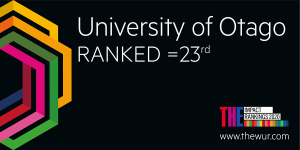AFAANZ Research Grant, 2020
CEFGroup member Hoa Luong has received an AFAANZ Research Grant. She will study on financial and service performance challenges arising from climate change-induced natural disasters in Australian and New Zealand charities.
Congratulations Hoa!
The Best Paper award in Corporate Social Responsibility (CSR)
A paper by CEFGroup members Ivan Diaz-Rainey and David Lont won the best paper award in CSR at the recent AFAANZ Conference 2020. The title of the paper is Shareholder activism on climate change: evolution, determinants and consequences. The paper is co-authored with Paul A. Griffin from the University of California, Davis and Antonio J. Mateo Márquez and Constancio Zamora Ramírez from the University of Seville. Ka pai!
CANCELLED – Joint OERC and CEFGroup Seminar
The Climate & Energy Finance Group (CEFGroup) and Otago Energy Research Centre (OERC) webinar on sustainable finance Wednesday 22nd July at 12 noon. Our speaker is Karen Silk, GM Experience Hub, Westpac NZ, and co-chair of the Sustainable Finance Forum. All welcome. Details in the poster.
New IAEE Working Paper: Trump vs. Paris
A new paper by CEFGroup Director Ivan Diaz-Rainey, Deputy-Directors Sebastian Gehricke and Helen Roberts, and PhD student Renzhu Zhang on “Trump vs. Paris: The Impact of Climate Policy on U.S. Listed Oil and Gas Firm Returns and Volatility”, has recently published as IAEE/USAEE Working Paper No. 20-451.
Full paper available at SSRN
Summary:
We explore the stock market and option implied volatility response of the oil and gas industry to four policy events associated with the Paris Agreement and the election of Donald Trump. Our results show that the signing of the Paris Agreement had a large negative impact for the Oil and Gas sector (CAAR -8.4%), with Exploration and Production (CAAR -12.2%) and Drilling (CAAR -10.5%) most severely affected. This is further supported by an increase in implied volatility and by a structural break in option trader sentiment around the signing of the agreement. In general, the Paris Agreement had a much stronger impact on firms that had primarily U.S.-focused operations. Contrary to expectations, the election of Donald Trump and the announced withdrawal of the U.S. from the Paris Agreement negatively affected some sub-sectors (transport and integrated) and the sector overall. We attribute this to (1) Trump’s policies supporting domestic production (benefitting unlisted independent producers at the expense of listed competitors with import and international assets), and (2) on “We Are Still In” efforts by U.S. states, cities and companies to continue to meet Paris Agreement goals. Overall, our results indicated that investors are pricing current policies when examining climate risk and that, in this respect, the Paris agreement trumped Trump.
New IAEE Working Paper: Predicting Carbon Footprints using Machine Learning
A paper by CEFGroup PhD student, Quyen Nguyen and supervisors Ivan Diaz-Rainey and Duminda Kuruppuarachchi on “Predicting Corporate Carbon Footprints for Climate Finance Risk Analyses: A Machine Learning Approach”, has recently published as IAEE/USAEE Working Paper No. 20-450.
Full paper available at SSRN
Summary:
This paper uses machine learning to improve the prediction of corporate emissions so that financial regulators and investors can make better decisions about climate transition risk. The need for predictions arises because only a subset of global companies report emissions. The novelty is to use machine learning rather than the conventional regression approaches and naïve models implemented by data providers. Our best-performing model is a two-step framework that applies a Meta-Elastic Net learner to combine predictions from multiple base-learners. It results in an accuracy gain based on mean absolute error of up to 30% as compared with the existing models. We find that prediction accuracy can be further improved by incorporating additional predictors (energy data) and additional firm disclosures in particular sectors (utilities and real estate) and regions (Asia and Latin America). This provides an indication of where policymakers should concentrate their efforts for greater disclosure.
New CEFGoup paper on Valuing Emissions in Canada
Professor David Lont, CEFGroup member, and co-authors recently published the paper “The Curious Case of Canadian Corporate Emissions Valuation”, in the British Accounting Review. View paper here
Summary:
This study examines the relevance to investors of the greenhouse gas (GHG) emissions of publicly-traded Canadian firms over 2006–2018. Based on two independent datasets, we document that firm value varies positively in the level of emissions. This result suggests that the Canadian setting differs from those studied previously, notably because of low climate litigation risk and national and subnational expenditure policies to offset climate impacts on the economy. While national and subnational expenditures to mitigate emissions affect firms’ on-balance-sheet costs and profits, investors price the future payoffs to these expenditures into firm value. Supporting this view, we find that the positive relation between emissions and firm value in Canada is amplified for high GHG-intensity firms (mainly energy firms in Alberta), whose future payoffs to environmental policies and spending exceed those of low GHG-intensity firms. Our results are consistent with investors’ recognition of the benefits to firm value of national and subnational policies to decarbonize the Canadian economy.
Article Reference:
Griffin, P. A., Lont, D. H., & Pomare, C. (2020). The Curious Case of Canadian Corporate Emissions Valuation. The British Accounting Review, 100922. doi:https://doi.org/10.1016/j.bar.2020.100922
University of Otago ranked 23rd in Times Higher Education Impact Ranking
University of Otago ranked 23rd in Times Higher Education Impact Ranking out of 766 universities from 85 countries. The ranking assesses university’s contribution to United Nation’s Sustainable Development Goals (SDGs). In particular, the University of Otago ranked third in the world for their contribution to sustainable cities and communities (SDG11), fifth for good health and wellbeing (SDG3), 29th for climate actions (SDG 13), 36th for affordable and clean energy (SDG7) and 28th for partnerships to achieve the goals (SDG17).
Click here to view the full ranking results.






